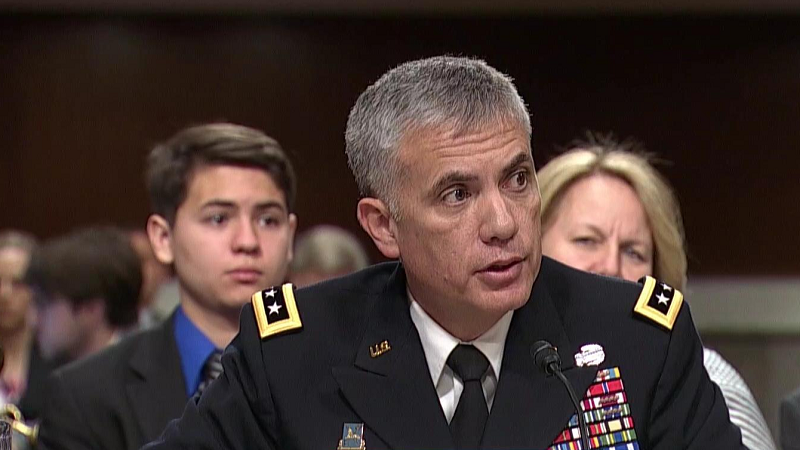
The U.S. Cyber Command (Cybercom) and the National Security Agency have joined the effort to protect the integrity of this year’s midterm elections, which are occurring under the shadow of Russia’s meddling in the 2016 election and warnings from U.S. intelligence agencies that 2018 is seeing more of the same.
“I believe our mandate is clear,” Army Gen. Paul M. Nakasone, who heads both of the Department of Defense (DoD) agencies, said last week. DoD will provide the Department of Homeland Security (DHS) with “intelligence, information support, and technical expertise” that can be passed along to state and local election officials to help them fend off attempts at interference from foreign sources. “This is a vital mission for us and our nation,” Nakasone said.
DoD’s jurisdiction doesn’t typically extend to domestic events, except when national defense comes into play. The borderless nature of cyber activity, such as attacks attributed to Russia on this country’s power grids and infrastructure, have increasingly turned the attention of the nation’s cyber warriors inside the border. DoD and DHS developed a plan several years ago on how to respond together to significant cyber incidents. And since Russia’s–or any other country’s–election-related cyber activities begin abroad, DoD can focus its intelligence-gathering efforts there.
Meanwhile, National Guard units, whose part-time personnel include a lot of soldiers with private-sector cyber skills, have been called in by several states to help protect election systems. Some in Congress argue that the practice should be more common.
Russia’s 2016 campaign was a multi-pronged effort that included a social media campaign to fan the flames of political divisions. It also encompassed cyber hacks of the Democratic National Committee, other organizations, and individuals, and attacks on elections systems in as many as 39 states, with reports earlier this year that systems in seven states had been compromised. No votes were changed, DHS has said, but the evidence suggests that vote-altering, or perhaps mayhem with voter registration lists, is possible without better defenses.
Intelligence officials said this month that Russia is continuing its campaign, targeting both this year’s midterm elections and the 2020 presidential contest. “This is a threat we need to take extremely seriously and to tackle and respond to with fierce determination and focus,” FBI Director Christopher Wray said at a White House briefing. To date, most of Russia’s efforts, as in 2016, have involved disinformation campaigns on social media and other channels, the officials said. But political campaigns, and to a much lesser extent voting systems themselves, are a likely target for cyber intrusions. States have been working to shore up their systems and add paper backups to systems that don’t already have them.
Last month, Microsoft officials revealed that the company had detected hacking attempts against three candidates in the midterm elections (Sen. Claire McCaskill, D-Mo., later said she was one of them), the first such attempts this year to be publicly disclosed.
While the National Guard’s cyber units can help by working directly with states, Cybercom and the NSA will be working other areas of what are international operations. They can’t do much to lock down local election systems, of course, but they can conduct intelligence gathering on foreign operations. Intelligence agencies and Cybercom can spy on Russian groups behind the hacking attempts and alert DHS to their activities.
